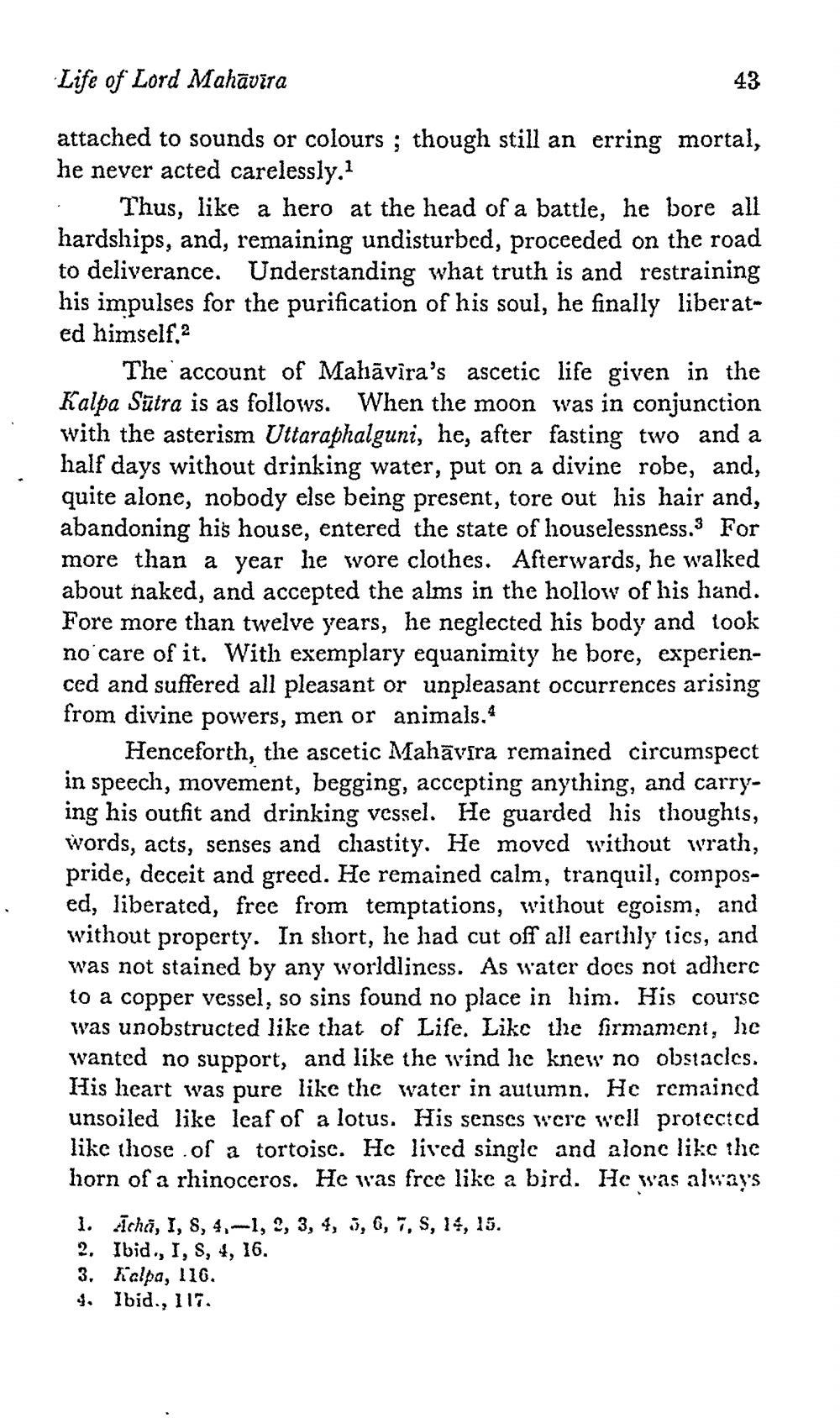________________
Life of Lord Mahāvira
attached to sounds or colours; though still an erring mortal, he never acted carelessly.1
43
Thus, like a hero at the head of a battle, he bore all hardships, and, remaining undisturbed, proceeded on the road to deliverance. Understanding what truth is and restraining his impulses for the purification of his soul, he finally liberated himself.2
The account of Mahāvira's ascetic life given in the Kalpa Sutra is as follows. When the moon was in conjunction with the asterism Uttaraphalguni, he, after fasting two and a half days without drinking water, put on a divine robe, and, quite alone, nobody else being present, tore out his hair and, abandoning his house, entered the state of houselessness. For more than a year he wore clothes. Afterwards, he walked about naked, and accepted the alms in the hollow of his hand. Fore more than twelve years, he neglected his body and took no care of it. With exemplary equanimity he bore, experienced and suffered all pleasant or unpleasant occurrences arising from divine powers, men or animals.*
Henceforth, the ascetic Mahavira remained circumspect in speech, movement, begging, accepting anything, and carrying his outfit and drinking vessel. He guarded his thoughts, words, acts, senses and chastity. He moved without wrath, pride, deceit and greed. He remained calm, tranquil, composed, liberated, free from temptations, without egoism, and without property. In short, he had cut off all earthly ties, and was not stained by any worldliness. As water does not adhere to a copper vessel, so sins found no place in him. His course was unobstructed like that of Life. Like the firmament, he wanted no support, and like the wind he knew no obstacles. His heart was pure like the water in autumn. He remained unsoiled like leaf of a lotus. His senses were well protected like those of a tortoise. He lived single and alone like the horn of a rhinoceros. He was free like a bird. He was always
1. Acha, I, 8, 4,-1, 2, 3, 4, 5, 6, 7, S, 14, 15.
2. Ibid., I, S, 4, 16.
3. Kalpa, 116.
4. Ibid., 117.




